10 Things That Increase Your Colon Cancer Risk (and What to Do About Them)


Anytime you think about your risk for colon cancer, it’s important to consider two factors: things you can change, and the things you can’t. Case in point? You can’t do much about your age (see the next slide!), but you can do a lot about the choices you make. And the good news about colon cancer is that those choices have huge power behind them. With that in mind, we asked experts to share the top risk factors, their best advice for keeping them—and colon cancer—in check, plus a few important signs that warrant a call to doctor.

You're Over Age 50
Age matters—to some extent. “Today, more than 90 percent of colon-cancer cases occur in people over age 50," says Gowrapopala (G.S.) Ramesh, M.D., a gastroenterologist at the Cancer Center at Memorial Hermann-Texas Medical Center in Houston, TX.
What to Do:Schedule some form of screening test around your 50th birthday. You might qualify for earlier testing if you have a family history or other risk factors (keep reading!). In fact, the American Cancer Society recently suggested that most adults start screenings at age 45, due in part to the increasing numbers of Millennials and Gen-Xers being diagnosed. Dr. Ramesh foresees this “official” change happening soon.
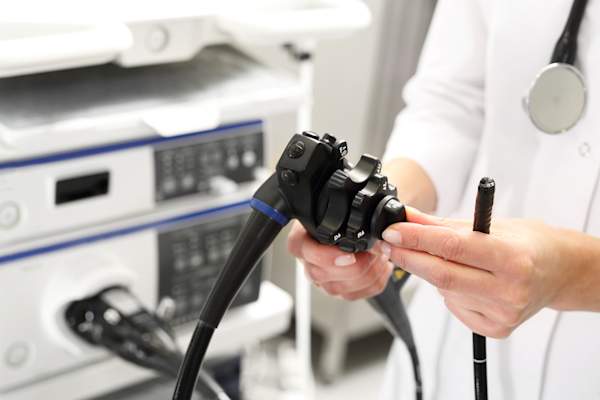
You've Put Off Screenings
没什么有趣的所需的准备。但年代kipping it to spare yourself a few hours of bathroom annoyance isn’t worth it!
What to Do:Schedule thatcolonoscopy, the “gold standard” of screening, says Dr. Ramesh. What’s involved: Your doctor examines the rectum and entire colon for abnormal or cancerous changes with a lighted tube while you're sedated. Or get avirtual colonoscopy, which is done via a CT scan. It’s faster (10 minutes instead of 30) and doesn’t require sedation. Last choice: Send a sample of your poop to a lab using aCologuard or FIT Test, which scans for blood and DNA changes.
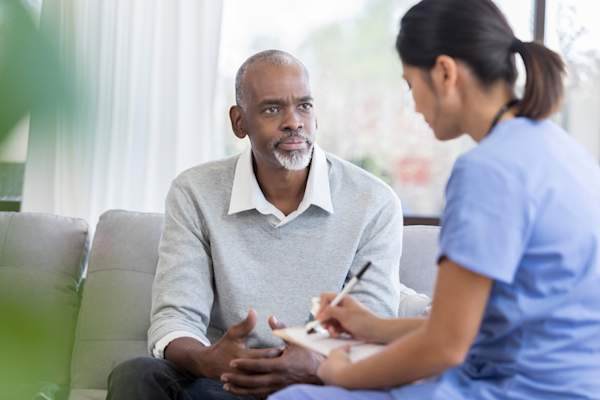
One More Word on Screenings
Both types of colonoscopy—actual and virtual—require downing a special “bowel prep” drink that sweeps away every iota of poop in your system. What comes out is ultimately in liquid form, a seismic diarrhea. (Thisguidecan help get you through.) The fecal tests may spare you the hours in the bathroom up front, but if they come back positive, you'll have to have a colonoscopy anyway to confirm the results.
What to Do:Whichever test you choose,carry through: “Any test is always better than no test,” says Dr. Ramesh. “Found early, the cure rate is 90 to 95 percent.”
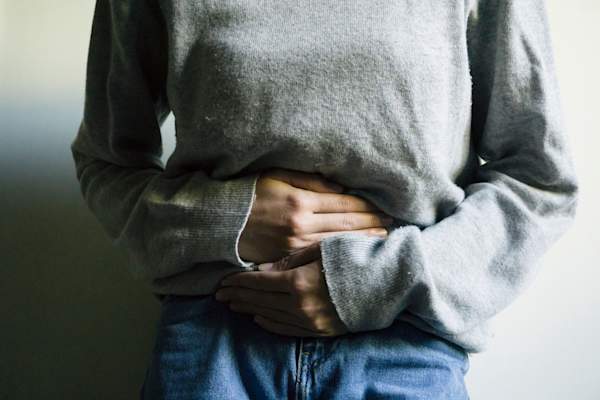
You've Got an Inflammatory Bowel Disease
If you’ve had ulcerative colitis or Crohn's disease (but not irritable bowel syndrome) for eight years or more, you’re at increased risk for colon cancer, says Dr. Ramesh. Though experts think this may depend on how much of the colon has been inflamed—and for how long—they also admit there’s a lot that’s unclear, according to research published in theWorld Journal of Gastroenterology.
What to Do:Sign up for news alerts from a foundation or research organization focused on inflammatory bowel diseases to stay up to date on the latest findings. And schedule follow-up screenings like clockwork every one-to-two years, or as your doctor indicates.

There's Colon Cancer in Your Family
Vigilance is the name of the game if mom, dad, or another first-degree relative had colon cancer. “A family history of colorectal cancer or of polyps is definitely a risk, compared to 'John Doe' with neither factor,” explains Dr. Ramesh. (A polyp is clump of cells in the lining of the rectum or colon that could turn cancerous.)
What to Do:Start screenings a decade before an affected relative was diagnosed, says Dr. Ramesh. Share your history and any worries with your doctor. If an inherited colorectal-cancer syndrome such as Lynch Syndrome’s is in play, you probably became a pro at colonoscopies in your teens.
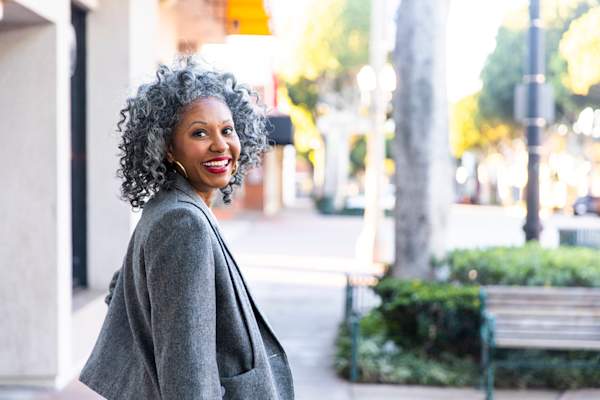
You're African-American
Screening for colon cancer is extra-important if you’re African-American. The reason: Your risk for getting—and dying—from this cancer is substantially higher than it is for other Americans. A study in the journal在肿瘤领域said this might be due to genetic differences that can affect the immune system, as well as an increased chance of developing long-lasting inflammation. Difficulty getting to the doctor for screenings or care can make a difference in finding colon cancer, too.
What to Do:Ask your doctor about your level of risk, and be uber-proactive about screenings.

You're a Couch Potato
Do you qualify? Basically, if you’re sitting or lying down for hours on end, you’re a member of the club. And your colon-cancer risk rises the longer you’re inactive, says Dr. Ramesh. But this can change!
What to Do:At a minimum, stand up and get ambulating—briskly—for at least 30 minutes daily. If you manage more, great! Movement that gets your heart beating faster encourages peristalsis, or bowel function that moves waste along and prevents poop from “sitting” in the colon and having the chance to expose the body to toxins longer. (Though a link’s been made, the jury’s still out on whether chronic constipation causes colorectal cancer.)

Your Jeans No Longer Fit
Another one in the ‘you can work on this!’ category: carrying around a lot of extra weight.The National Cancer Institute sayspeople who are obese are about 30% more likely to develop colon cancer than folks of normal weight. The reason: A complex set of factors involving increased levels of insulin, inflammation, and more with excess pounds.
What to Do:You know what’s required… but we also know that eating less and exercising more is way easier said than done. And for some people,it’s not enough. So start with small goals, like prepping yourself to eat a healthy snack by popping an apple into your bag, or trying to walk 10 minutes a day. And build from there. If you’re really struggling, there’s no shame is reaching out to your doctor for help.
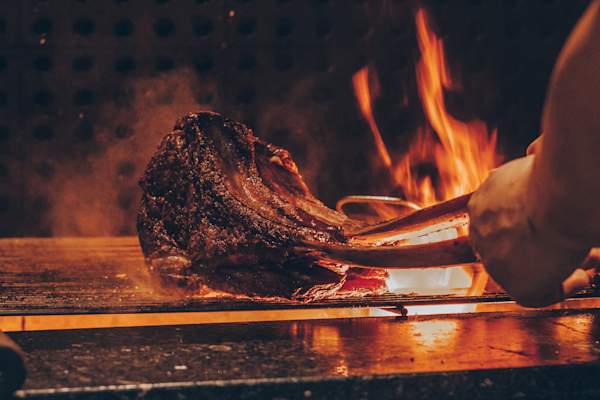
You're a Red-Meat Lover
Loading up on foods high in fat, including red meat, increases the risk of colon polyps—and therefore colon cancer.The American Institute for Cancer Researchputs the hazard tipping point at 18 ounces of red meat (beef, lamb, pork) per week. Also bad: Meat that’s processed (salted, smoked, cured) or injected with preservatives.
What to Do:Sprinkle meat-free days into your week and make meat portions smaller. Try stacking your plate with proteins such as fish, chicken, and turkey, and build in high-fiber grains and fruits and vegetables that function like colon-scrubbers, such as beans and bran.

You Smoke and/or Drink on the Regular
Smoking causes cancer by exposing your body to 70+ chemicals that force cells to repeatedly fix themselves. In this frenzy of repair, DNA can get damaged—and become abnormal and cancer-prone. Moderate or heavy alcohol consumption wreaks havoc on your digestive system in similar ways,says the American Cancer Society指出,这不是酒精你dri的类型nk that matters as much as the amount. Alcohol can fast-track entry of harmful tobacco chemicals into the body, compounding the cycle of cell damage and flawed repair.
What to Do:Limit to two drinks a day if you’re male, and one if you’re female.

You're Embarrassed!
Yes, it qualifies as a risk factor. When you’re too red-faced to talk about constipation, the shape of poop, and similar red flags, early colorectal cancer warning signs get missed.
What to Do:Put aside feelings or thoughts that interfere with getting checked out, urges Dr. Ramesh, who after 30 years has seen his share of patients grapple with how to broach the topic. We're not doing enough screenings, he says. Medical societies set a lofty goal of screening 80% of eligible folks in 2018, but only reached 65%. “Screenings for breast and prostate cancers have us beat at 95%.” Time for changes!

Your Poop's Changed!
This isn't a risk factor but a possible sign: If there’s a change in your bowel movements that lasts longer than four weeks, such as diarrhea, constipation, extra-dark stools, or bloody or weirdly shaped narrow poop (i.e. it’s pencil-thin or stringy), there could be something going on. Same if you keep feeling the need to go but then nothing happens.
What to Do:Don’t ignore symptoms—regardless of age, says Yi-Qian Nancy You, M.D., a colorectal cancer surgeon at MD Anderson Cancer Center in Houston, TX. Call your doc. And if she gives you the brush-off because you’re in your 20s or 30s, ask for a rectal exam or stool test. Still no traction? Get a second opinion.
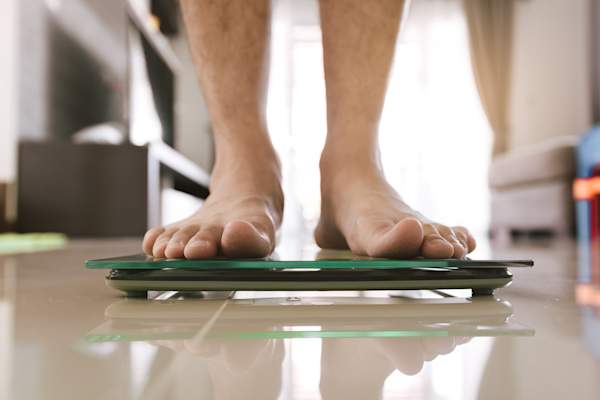
You've Got Nagging Tummy Troubles or Unexplained Weight Loss
Other potentially significant symptoms? Abdominal discomfort that sticks around for longer than you can explain away as a reaction to something you ate, for example. Relentless cramps, gas, or stomach pains need to get checked out if they linger for a week or more, says Dr. You. There’s likely a simple explanation—but growths in the colon do occur and can cause sharp and dull pain (they’re confusing like that). And pay attention if you’re eating as usual but dropping pounds; cancer can burn up the body’s energy supply and alter how you process energy from food and absorb nutrients.
What to Do:You know the drill. See your doctor.
